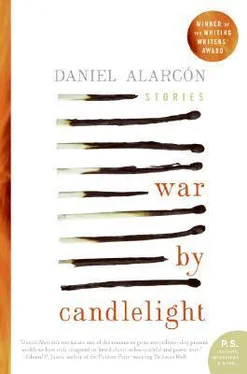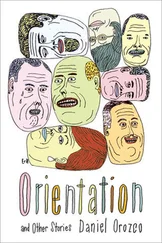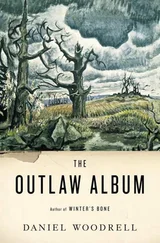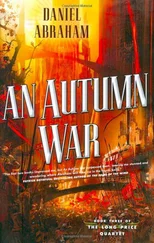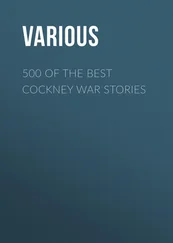When he awoke, there was a plate of food in front of him. Leah was at the sink, washing her dish. Eric was home. “Buenas noches!” he called out grandly. “Good game?” He pointed at the television. Two players chatted on the mound, their faces cupped in their gloves.
“Yes,” said Wari. He rubbed the sleep from his eyes.
Eric laughed. “The Yanks gonna get it back this year,” he said. “They’re the white team.”
“I’m sorry,” was all Wari could offer.
They spoke for a while in Spanish about the details of the exhibit, which was opening in two days. Wari’s canvases stood against the wall, still wrapped in brown paper and marked FRAGILE. They would hang them tomorrow. “Did you want to work while you were here?” Eric asked. “I mean, paint? At my department, they said they could offer you a studio for a few weeks.”
That had everything to do with the radioactive ticket interred at the bottom of his suitcase. Wari felt a tingling in his hands. He’d brought no brushes or paints or pencils or anything. He had no money for art supplies. He guessed it would be years before he would again. What would it be like not to paint?
“No, thank you,” Wari said in English. He curled his fingers into a fist.
“Taking a vacation, huh? That’s good. Good for you, man. Enjoy the city.”
Wari asked about phone cards, and Eric said you could get them anywhere and cheap. Any bodega, corner store, pharmacy, newsstand. “We’re connected,” he said, and laughed. “Sell them right next to the Lotto tickets. You haven’t called home?”
Wari shook his head. Did they miss him yet?
“You should.” Eric settled into the couch. Leah had disappeared into the bedroom.
His host spoke to the flickering television while Wari ate.
The American embassy sits hunched against a barren mountain in a well-to-do suburb of Lima. It is an immense bunker with the tiled exterior of a fancy bathroom, its perimeter gate so far from the actual building that it would take a serious throw to hit even its lowest floor with a rock. A line gathers out front each morning before dawn, looping around the block, a hopeful procession of Peruvians with their sights on Miami or Los Angeles or New Jersey or anywhere. Since the previous September, after the attacks, the embassy had forced the line even farther out, beyond blue barricades, to the very edge of the wide sidewalk. Then there’d been a car bomb in March to welcome the visiting American president. Ten Peruvians had died, including a thirteen-year-old boy unlucky enough to be skateboarding near the embassy at exactly the wrong moment. His skull had been pierced by shrapnel. Now the avenue was closed to all but official traffic. The line was still there, every morning except Sundays, in the middle of the empty street.
Before his trip, Wari presented his letter and his fees and his paperwork. Statements of property, financials, university records, a list of exhibitions and gallery openings, certificates of birth and legal documents regarding a premature marriage and redemptive divorce. The entirety of his twenty-seven years, on paper. The centerpiece, of course, was Eric’s invitation on letterhead from his university. Eric had let him know that this wasn’t any old university. Wari gathered that he should say the name of the institution with reverence and all would know its reputation. Eric had assured him it would open doors.
Instead the woman said: We don’t give ninety-day visas anymore.
Through the plastic window, Wari tried pointing at the invitation, at its gold letters and elegant watermark, but she wasn’t interested. Come back in two weeks, she said.
He did. In his passport, Wari found a one-month tourist visa.
At the airport in Miami, Wari presented his paperwork once more, his passport and, separately, the invitation in its gilded envelope. To his surprise, the agent sent him straightaway to an interview room, without even glancing at the documents. Wari waited in the blank room, recalling how a friend had joked: “Remember to shave or they’ll think you’re Arab.” Wari’s friend had celebrated the remark by shattering a glass against the cement floor of the bar. Everyone had applauded. Wari could feel the sweat gathering in the pores on his face. He wondered how bad he looked, how tired and disheveled. How dangerous. The stale, recycled air from the plane compartment was heavy in his lungs. He could feel his skin darkening beneath the fluorescent lights.
An agent came in, shooting questions in English. Wari did his best. “An artist, eh?” the agent said, examining the paperwork.
Wari folded his fingers around an imaginary brush and painted circles in the air.
The agent waved Wari’s gesture away. He looked through the papers, his eyes settling finally on the bank statement. He frowned.
“You’re going to New York?” he asked. “For a month?”
“In Lima, they give to me one month,” Wari said carefully.
The agent shook his head. “You don’t have the money for that kind of stay.” He looked at the invitation and then pointed to the paltry figure at the bottom of the bank statement. He showed it to Wari, who muffled a nervous laugh. “Two weeks. And don’t get any ideas,” the agent said. “That’s generous. Get your ticket changed when you get to New York.”
He stamped Wari’s burgundy passport with a new visa and sent him on his way.
At baggage claim, Wari found his paintings in a stack next to an empty carousel. He made his way through customs, answering more questions before being let through. He waited patiently while they searched his suitcase, rifling through his clothes. His paintings were inspected with great care, and here the golden letter finally served a purpose. Customs let him through. Wari felt dizzy, the shuffling noise of the airport suddenly narcotic, sleep calling him to its protective embrace. Ninety days is a humane length of time, he thought. Enough time to come to a decision and find its cracks. To look for work and organize contingencies. To begin imagining the permanence of good-byes. It wasn’t as if Wari had nothing to lose. He had parents, a brother, good friends, a career just beginning in Lima, an ex-wife. If he left it behind? Even a month spent in meditation — ambling about a new city, working out the kinks of a foreign language — might be space enough to decide. But two weeks? Wari thought it cruel. He counted days on his fingers: twenty-four hours after his paintings came down, he would be illegal. Wari had imagined that the right decision would appear obvious to him, if not right away, then certainly before three months had passed. But there was no chance of clarity in fourteen days. Wari walked through the Miami airport as if he’d been punched in the face. His feet dragged. He made his flight to La Guardia just as the doors were closing, and was stopped again at the jetway, his shoes examined by a plastic-gloved woman who refused to return his weak smiles. On the plane, Wari slept with his face flush against the oval window. There was nothing to see anyway. It was an overcast day in South Florida, no horizon, no turquoise skies worthy of postcards, nothing except the gray expanse of a wing and its contrails, blooming at the end like slivers of smoke.
Leah woke him with apologies. “I have to work,” she said softly. “You couldn’t have slept through it anyway.” She smiled. Her hair was pulled back in a ponytail. She smelled clean. Leah made jewelry, and his bedroom, which was actually the living room, was also her workshop.
“Is okay,” Wari said, sitting up on the couch, taking care to hide his morning erection.
Leah grinned as Wari fumbled awkwardly with the sheet. “I’ve seen plenty of that, trust me,” she said. “I wake up with Eric every morning.”
Читать дальше
